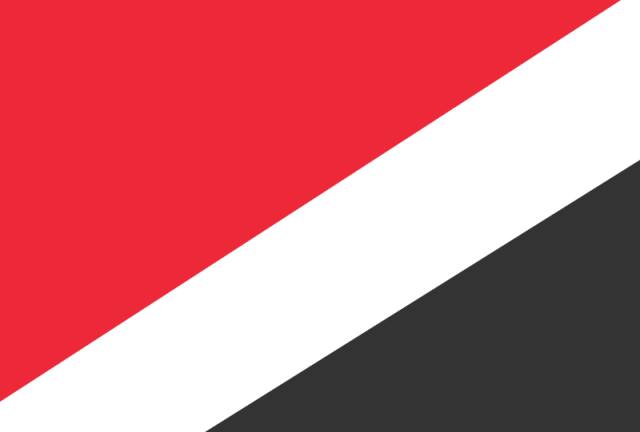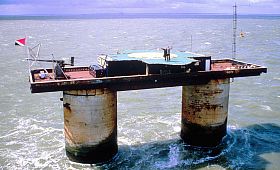On September 2, 1967 Englishman Roy Bates set the bar remarkably high when he gave a pretty extravagant birthday gift to his wife. That was the day he bestowed upon her the title of Princess Joan and made her the sovereign of a new nation called Sealand, which today celebrates the fifty-fourth anniversary of its establishment.
Don’t tell the Sealanders, but technically, it is what’s known as a micronation, basically meaning that as far as the international community is concerned, it’s not a real thing at all. But Sealand was created from a defensive platform fortress built during World War II in what was then international waters by Great Britain, and over the years it has achieved a modicum of legal recognition.
Bates occupied what was known as Fort Roughs Tower with the intention of running a pirate radio station from about seven or so miles off the coast of Suffolk and beyond the interference of the BBC. He never did establish the radio station, though. Instead, he consulted with a lawyer, and declared The Principality of Sealand.
The primary question, it seems to me, is why? Sealand doesn’t seem to me like an especially pleasant place to live, and at any given time, according to its current head of state Michael Bates, its in-country population is “normally like two people.”
It’s also taken the Bates family a significant effort to maintain through the years. When England began destroying several similar platforms off its coast in the late 1960s, Sealanders fired warning shots toward approaching vessels. Bates faced legal ramifications, but the British courts decided they had no jurisdiction in the case, which its prince took as legal justification for his “nation’s” existence.

Later, in 1978, Sealand faced an invasion by German and Dutch mercenaries, resulting in Prince Michael being held hostage. The prince eventually managed to use some of the resources at his disposal on Fort Roughs to overwhelm his captors, one of whom was in possession of a Sealand passport and so was tried and imprisoned for treason. Because a German diplomat entered into eventually successful negotiations on the man’s behalf, Sealand could then claim German recognition as a nation. Kind of.
The whole thing sounds exhausting to me, but then I think I also might kind of get it. At least a little bit. Because even though the Bates family are British citizens who primarily reside on land in Great Britain, they have a place to retreat to when their government leaders go and do really, really stupid things. As government leaders so often seem to do.
The rest of us are left uselessly yelling at our television screens, computer monitors, phones, messenger pigeons, or however we get our news, and trying to invent more creative swear words to post self-righteously on social media because the old ones no longer seem adequate. Meanwhile, the royal family of Sealand, and “normally like two” of its citizen caretakers, can escape to their weird North Sea micronation haven where they can make their own decisions and Grandma Joan’s head is on the coins.

It sounds kind of nice, actually. At least once in a while. And apparently other people think so, too, because micronations have been popping up all over the world for at least a century. Some exist on little (or quite large) bits of unclaimed land within the borders of recognized nations, some on islands, some in cyberspace, and even one in outer space. It boasts more than 160,000 citizens.
Most don’t tend to last too long, and few receive even as much sort-of recognition as Sealand has managed. As the spunky North Sea micronation celebrates fifty-four years of well-imagined existence, it’s not entirely clear how long it will continue.
The Bates family seems determined to fight for their little chunk of the world, but since England’s borders expanded in 1987 to include twelve miles out into the sea, Sealand does now technically exist within the country whose citizenship its royal family still holds. If there’s ever reason for a legal battle again, I’m not convinced, in all my vast (totally made-up) understanding of law, that it will survive. I think I’m rooting for them, though, and dreaming of my own island nation of Angletonia.


I live in my own little world but it’s okay. They know me here. Being a monarch sounds like a royal pain to me.
It’s probably not too bad if you only have a handful of citizens and they’re all related to you.
Hahaha! Very true.
I would rather have a handful of citizens not related to me!